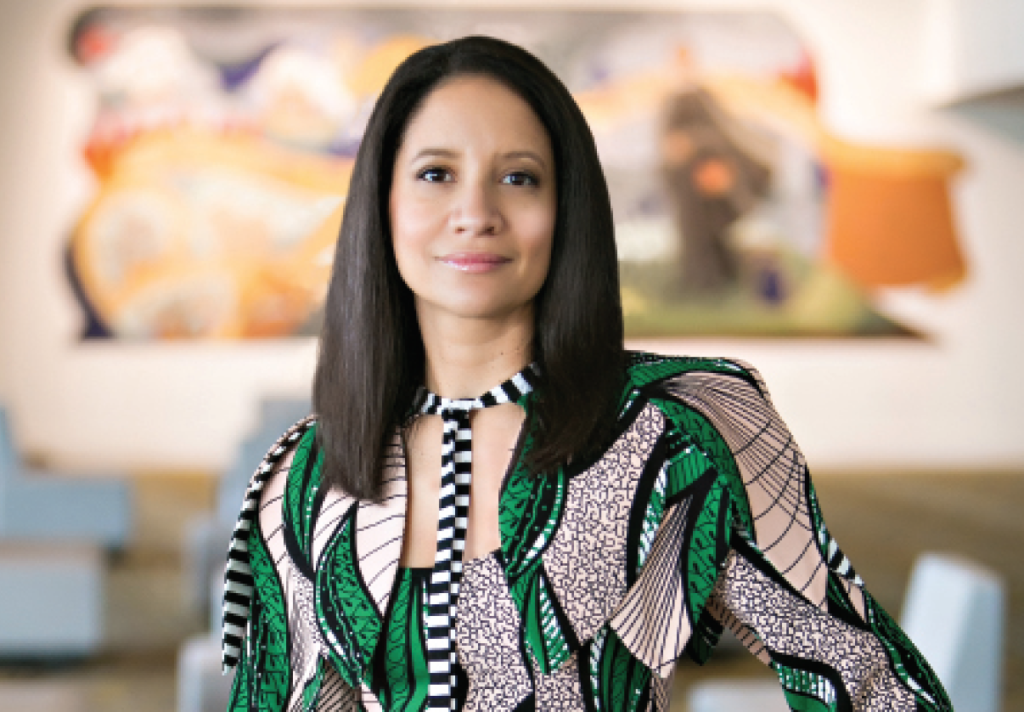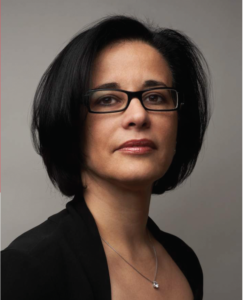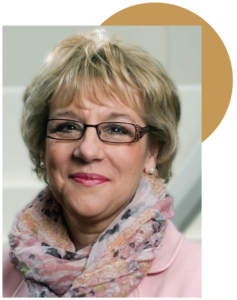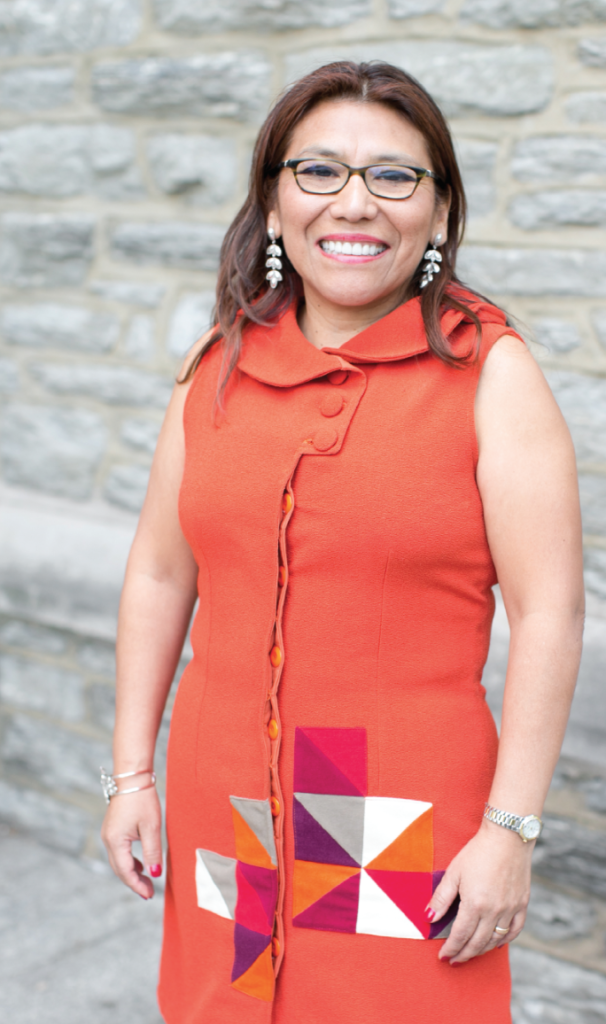We know too little about female chief executives. Liz Mellon shares stories from 11 female leaders around the world
Women leaders are in the news – and for all the wrong reasons. In August 2018, when it emerged that Indra Nooyi was stepping down from PepsiCo, The New Yorker reported that women make up less than 5% of the chief executives of major corporations. They’re paid less than their male counterparts, and are prone to having their looks analysed and their comments blown out of proportion. In November, global management consulting firm McKinsey reported that progress on gender diversity had stalled, while the Global Institute for Women’s Leadership – headed by former Australian Prime Minister Julia Gillard – reported that ‘leaning in’ is not enough; workplaces, not women, need to change. And in December 2018, the front page of The Times highlighted that in the FTSE 100, only six chief executives are women.
Perhaps because women chief executives remain so thin on the ground, we know little about them. It’s high time that changed. Here, we look at 11 women who run everything from a family-owned business in Indonesia, to a global mining company. They are women at the top of their game, and these are their stories.
How to ask – and get
How do women get ahead at work? The research is contradictory. Some of it indicates that women don’t ask for opportunities, pay rises or promotion – and that’s why they don’t ‘get’. Other research says they do ask, but still don’t get. Clearly, the 11 women here know very well how to ask and get results, although that doesn’t mean they do it in exactly the same way.

Sheila Tiwan
Sheila Tiwan returned to Indonesia from a director-level role in a San Francisco fintech company, taking over a family business on the brink of collapse. The company was riddled with corruption and embezzlement and needed drastic action to save it. Looking back, Tiwan says: “I knew it would be hard, but I couldn’t foresee how hard. I was dealing with older men who didn’t respect me because I was both young and a woman.
“I wasn’t an authoritative figure at first, but I made sure that I took the job only on the condition that I would call all the shots. Whether asking someone to take a 25% pay cut, relocating or firing them – my decisions stood. I was up against 200 corrupt people, representing 99.5% of the company, and it was the only way it was going to work.” Thirteen years and 1,000% growth later, her determination to take command has paid off.
Anne Sempowski Ward
Anne Sempowski Ward worked for Procter & Gamble (P&G) for 14 years, four in manufacturing as a process engineer and ten in brand management. “After two years at P&G, I was restless. I was in a plant and I wondered – why these products? Why this colour packaging? Senior leadership held an annual strategy deployment meeting and so I put up my hand and asked these questions.

The head of marketing told me it was the first time that this had happened. When she explained the answer I decided I needed to understand more about business, so I applied successfully to Fuqua to study for an MBA. I told my plant manager that I was leaving and an hour later I received a call from a senior female manager in the plant, who asked me if I had considered another career in P&G.
“I was flown to Cincinnati, met someone for a conversation which actually turned out to be an interview, and was offered a job as an assistant brand manager. Fuqua admissions department told me that this was the kind of job they hoped their graduates could land – so I took it.” Four years on, she found herself bored again, not learning or growing in her job. She told her boss. The general manager called her in and asked what she would rather be doing. She told him: “I would like to figure out how to grow our brands with women like me [of colour], because today we don’t speak to them.” She was immediately offered the job of brand manager, multicultural marketing, and allowed to write her own job description. “In 14 years I tried to leave more than once so that I could remain passionate about what I do. I trusted myself to be able to take on whatever came next. I wonder if women naturally do this?”
Anna Gong
Anna Gong’s family emigrated to the USA from China when she was eight. She is a serial risk-taker and entrepreneur, whose start-up career began in Silicon Valley and whose fourth venture was successfully bought out by CA Technologies. She stayed on with CA and moved to Singapore with them in 2009, then quickly on to Japan, where she was widely expected to fail in the prevailing male-dominated environment. She proved the doubters wrong, turning the business round and growing it year-on-year by 220%. Gong felt she was ready for a bigger role running the region, and when the perfect job opened up back in Singapore, she asked her boss.

She was turned down.
Two weeks later, she asked again, with the same result. After taking some advice from a leadership coach, she went back for a third time – and got the job. Gong says: “If you don’t try, you never know. You need fervour and tenacity – never give up too early if you believe in yourself!”
When she joined Perx as a growth CEO, Gong realized that the business model was unsustainable. She had to convince the board to pivot on the strategy. She had inherited investors who were friends and family of the original two founders, and one in particular was uncooperative. Gong told him forcefully that he had to sign the agreements to close a particular fundraising round. The heated conversation included four-letter words and a graphic description of her view of his investment strategy. This isn’t to recommend swearing as an influencing strategy: it is, though, to suggest that any woman faced with a tough situation should disregard notions of what is generally regarded as feminine or masculine. The outcome? The investor stopped shouting, signed the agreements and later became a trusted friend. As Gong says: “I wasn’t acting like a man. I had to be assertive, as would any business professional, given the company’s situation.”

Simona Scarpaleggia
Simona Scarpaleggia also started out in a male world – in her case, a table-thumping world of union negotiations. “I had to fight hard to be heard. At the age of 23 I was defining my personality. I didn’t want to be seen as conciliatory and nice-but-ineffectual. Nor did I want to act like a man and be super-tough. I have always used evidence – I share my ambitions with my manager, but I also demonstrate my achievements and results. I joke with women I mentor today that there is no Prince Charming who will come along and rescue you if you keep working harder and hope to be noticed and rewarded. I know remarkable women who don’t take the initiative to show what they have achieved.”
Alexandra Altinger

Alexandra Altinger was headhunted into Wellington Management in early 2001. At the time she had three children younger than three and had decided that her working hours needed to be 7am-4pm, so that she could be at home when her children most needed her. These working hours were unheard-of in the industry, but were non-negotiable for Altinger, who was transparent about this request. Yet when the company finally made her an offer, they reneged on their initial promise to honour those working hours. Altinger felt angry and disappointed, and walked out.
Four weeks later, they invited her back on her terms. Yet after only six months, Altinger told her boss that the work wasn’t challenging enough, so she was leaving. “The MD was shell-shocked and asked me to wait an hour. They made me a director, a career progression that would normally have taken two years, and asked me what kind of clients I wanted.”
Take on the ‘big hairy challenge’
All of these women have taken on major challenges throughout their careers and worked immensely hard, often learning on the job. Their confidence in their own abilities is unshakeable. They trust themselves to be up to the next job.

Radhika Gupta
Radhika Gupta has lived her life with a broken neck, challenging enough in itself. She attended an American school in Nigeria and applied successfully to Wharton. In 2008, aged 25, she was working on Wall Street for AQR Capital, having completed a stint at McKinsey, when she and two partners decided to move to India to set up their own company, Forefront Capital Management. Although Indian, as the daughter of a travelling diplomat, she had never actually lived in India. “I was young, hungry and foolish and wanted to stretch beyond the comfort of Wall Street. My parents thought I was crazy, but I didn’t think it was courageous at the time. I didn’t take a salary and lived off my savings for two years. It was a rude shock trying to do business in India – it’s not a cheap place to start a business, and getting stuff done is tricky. I can remember travelling across the city to get a document notarized by hand, to save money. I had to learn and do everything at work, from understanding regulatory compliance to managing the pantry. I can remember my mum asking me if I was OK – I think we both knew that I wasn’t.” The business started with 2.5 million rupees under management ($35,000) and was worth $28 million when she sold it to Edelweiss Financial Services in 2014.
Cynthia Carroll
After starting out as a geologist, Cynthia Carroll was fresh out of Harvard and working as a strategy analyst for Alcan when she was assigned to an M&A group in Montreal. The group president decided that she had the skills to run a standalone business and sent her for an interview in Kentucky, where the response was, as she puts it, “‘there’s no way you can do this job, you have no experience.’”

“I wanted the job and the president told the business they had to take me. I knew it had a few issues, but it wasn’t until I joined that I realized it was on the edge of collapse. Our largest customer – one-third of our revenue and profits – decided to consolidate their suppliers from five to one. Despite being their number three supplier, we bid on all of the business and won it. People in the business told me that we couldn’t possibly meet the demand. We turned the whole place around, quadrupling our production and tripling our sales and profits in 18 months.”
Carroll is best known for her time as chief executive of Anglo American, where she worked to transform one of the largest mining companies in the world with 160,000 employees in operations across six continents. The company had always been run by white South African men, promoted from within. Carroll was none of these. She was determined to run a company where employees could feel confident about surviving their day at work, and her approach was based on world-class standards and safety.

Varda Shine
Varda Shine got into the diamond business by accident. She had finished her army service in Israel at the end of November, so had 11 months before starting university the next October, to study medicine. She took a job in diamonds to fill the gap – and stayed, learning about business through evening classes. She has taken on big business challenges: she moved to London in 1997 and in 2013 relocated De Beers trading company from London to Botswana. In common with others, she also faced the gruelling day-to-day challenge of being the only woman in the room. “I was the only woman for years and worked super-hard, because I had constantly to prove that I was better than the men. I really did not want them to win. I kept losing talented women and lots of times questioned whether I should stay. I was dealing with real chauvinism and conservatism – when the tea trolley came round, they all expected me to pour the tea. The men would get together and talk about sport and about women as objects. I was told it was OK for me to hear their sexist banter, because I was just one of the boys!”

Martina Milburn
Martina Milburn started work as a journalist and has fought for and achieved many firsts that are critical to sustaining a career for women. She started out as the first woman on the Press Association’s journalist training scheme and was the first person to take maternity leave at her organization when she had her eldest son in 1985. In turn, she has used her position as chief executive to make sure that other women benefit from policies for which she had to battle, such as equal pay, maternity leave and flexible working. Milburn describes winning her first chief executive role at Aspire (Association for Spinal Injury Research): “A friend suggested that I apply for the role. The charity was doing good work through many well-meaning and hard-working people, but a lot needed to change. The trustees were very challenging at interview, but their pushback only made me fight harder to get the job.”
Giving back
Varda Shine’s motto is taken from the economist Bernard Baruch: “You don’t have to blow out the other fellow’s light to let yours shine.” Unfortunately, there is a tendency for some successful women to subvert others. We can be our own worst enemies. In contrast, all of the 11 interviewed here help other women to succeed, by mentoring, establishing women’s groups, speaking at female forums and institutionalizing female-friendly policies, including paternity leave. There is also a strong streak of broader social conscience.
Shamina Singh

Shamina Singh has made giving back her life’s work. She explains that her work at Mastercard recognizes that giving women control of their own finances has a big impact on the unrealized economic potential of emerging economies. “I believe that companies do well by doing good. Around the world, the most consistent form of income for lower- and middle-income women is some sort of government subsidy, most of it handed over in cash that they wait for hours – and sometimes days – to access. It’s often passed via intermediaries who may take a cut, so the end receiver can get much less than they should. If governments deposit the funds directly in to a bank account that the woman owns, she gets the full amount on a card or in her phone and can more easily control where and how it gets spent. The devil is in the detail. For all the theory and all the goodwill, if you don’t focus on the mechanics of money and how it moves, you miss out on most of the impact.”
Rosanna Ramos-Velita

Rosanna Ramos-Velita also believes in the power of micro-finance. During her career, she held a series of senior executive roles at Citigroup, Bankers Trust and UBS. “As a senior CFO at Citi, I saw the power of micro amounts of dollar financing. I was born to parents who taught me that privilege brings responsibility, so after enjoying a great career I bought a bank in Peru. I did it because I knew I could make a difference. Despite the high risk profile of the investment, I trusted my instinct and my experience. I knew I could build a great financial institution which would be highly profitable and with high social impact. As women, we have to own our power, because racial or sexual harassment too often creates the pain of powerlessness in our lives. Our bank’s mission is to serve rural entrepreneurs, the poorest of the poor. We provide a full range of financial services to support the economic growth of rural entrepreneurs. When I bought the bank in 2011, we had $12 million in assets. Today we have close to $150 million, and we have grown from 20,000 to 167,000 clients.”
Ramos-Velita speaks vividly of her experiences of bias and sexism. “Peru is a male-dominated society struggling with a history of colonialism, where advertising features light-skinned people. None of this is me. I remember my early days of work at AT&T, when I was the only woman and the men left work together on Friday afternoons to go drinking and to strip clubs. I graduated top of my class, but something beyond my capacity meant I was not being given the same opportunities as the men. So I talk about my roots and tell my team: ‘If I can do this, so can you.’ Male, female, gay, whatever – just do your best. I have scars that I don’t want the young to have.”
